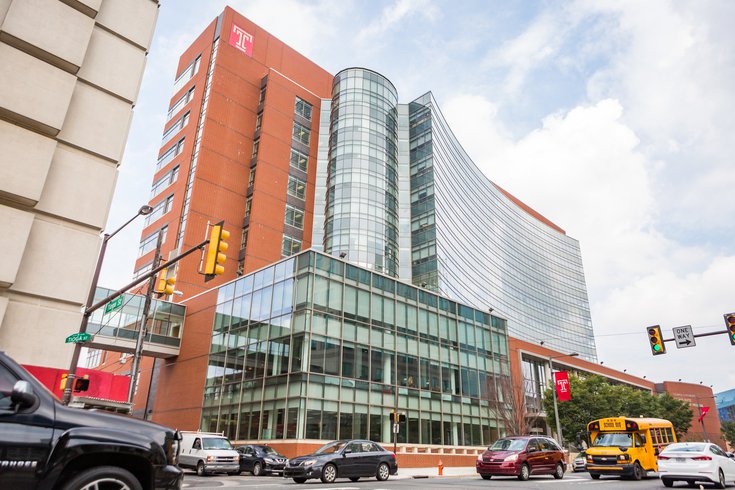
July 28, 2022
 Thom Carroll/For PhillyVoice
Thom Carroll/For PhillyVoice
Temple University's Lewis Katz School of Medicine recently received a grant for an educational program focused on standardized patient care. Members of Philadelphia's transgender and nonbinary community will work with residents to learn about best practices for developing cultural sensitivity for gender diverse patients.
A Temple University medical school program will pair students at Lewis Katz School of Medicine with community members in Philadelphia to learn about the health care needs of transgender patients.
Temple was one of 24 medical schools that recently received a $10,000 grant from the Alliance for Academic Internal Medicine, the American Board of Internal Medicine, the American College of Physicians, and the Josiah Macy Jr. Foundation to support incorporating diversity and inclusion into educational training.
The school will use the grant to create the UNIQUE Project, which will focus on the use of standardized patients. This is one of the ways medical residents learn how to develop patient sensitivity and communication skills.
While standardized patient care already exists for sexual orientation and gender diverse patients, those programs are few and far between, according to Dr. Jamie Garfield, a professor of thoracic medicine at the Temple Lung Center and leader of the LGBTQ curriculum for Temple's medical residents.
The UNIQUE Project will hire and train members of Philadelphia's transgender and nonbinary community to work as members of the project's advisory board, and also act as standardized patients.
There, trans and nonbinary city residents will be able to grade medical students and office staff on bedside manner and cultural competencies while providing tips from their own experiences.
"We know that there are disparities for care among members of the transgender and nonbinary communities, and much of the recent data would suggest that those disparities can lead to an increased risk for disease and suicide," said Garfield. "Many of these folks don't feel comfortable coming into doctor's offices or hospitals because they feel disrespected. One major reason they feel this way is because they feel they have to educate their doctor on what it means to be trans or nonbinary, and that is unacceptable."
Garfield noted that transgender and nonbinary patients can report having a wonderful experience with a doctor, but if they're misgendered or disrespected at the front desk, it is just as bad as having an "awful" provider.
The training program is meant to serve as one of many ways to bridge the barriers in access to health care among transgender and nonbinary people. The Movement Advancement Project recently found that one in eight LGBTQ people live in a state where doctors can refuse to treat them.
"The cultural sensitivity needs to begin from the moment (the patient) walks in the door, through the end of the encounter," Garfield said. "They'll do it in tandem — the residents will watch the office staff, the office staff will watch residents — and the standardized patients will grade both of them and give feedback in real time."
The UNIQUE Project is currently hiring transgender and nonbinary community members to take part in the program. All positions are part-time, and all participants will be paid.
Other regional grant award recipients include Lankenau Medical Center, which will use its $10,000 grant to expand a pilot program implemented in partnership with Cheyney University in Delaware County.
The program allows Lankenau's residents to teach Cheyney students about common medical conditions. The students then discuss their own experiences in health care related to those conditions.
"This experience provided a fascinating two-way learning experience that helped Lankenau's resident physicians understand more about the patients they care for while teaching Cheyney's students about medical conditions they or their families experience," said Dr. Jonathan Doroshow and Dr. Barry Mann at Main Line Health.
Cooper Medical School of Rowan University in South Jersey also received a grant from AAIM, which will be used to expand an oral history workshop that will provide training for residents, faculty, and nurses in the internal medicine program.
The training workshop involves a deep listening interview session, which is designed to elicit someone's life story.